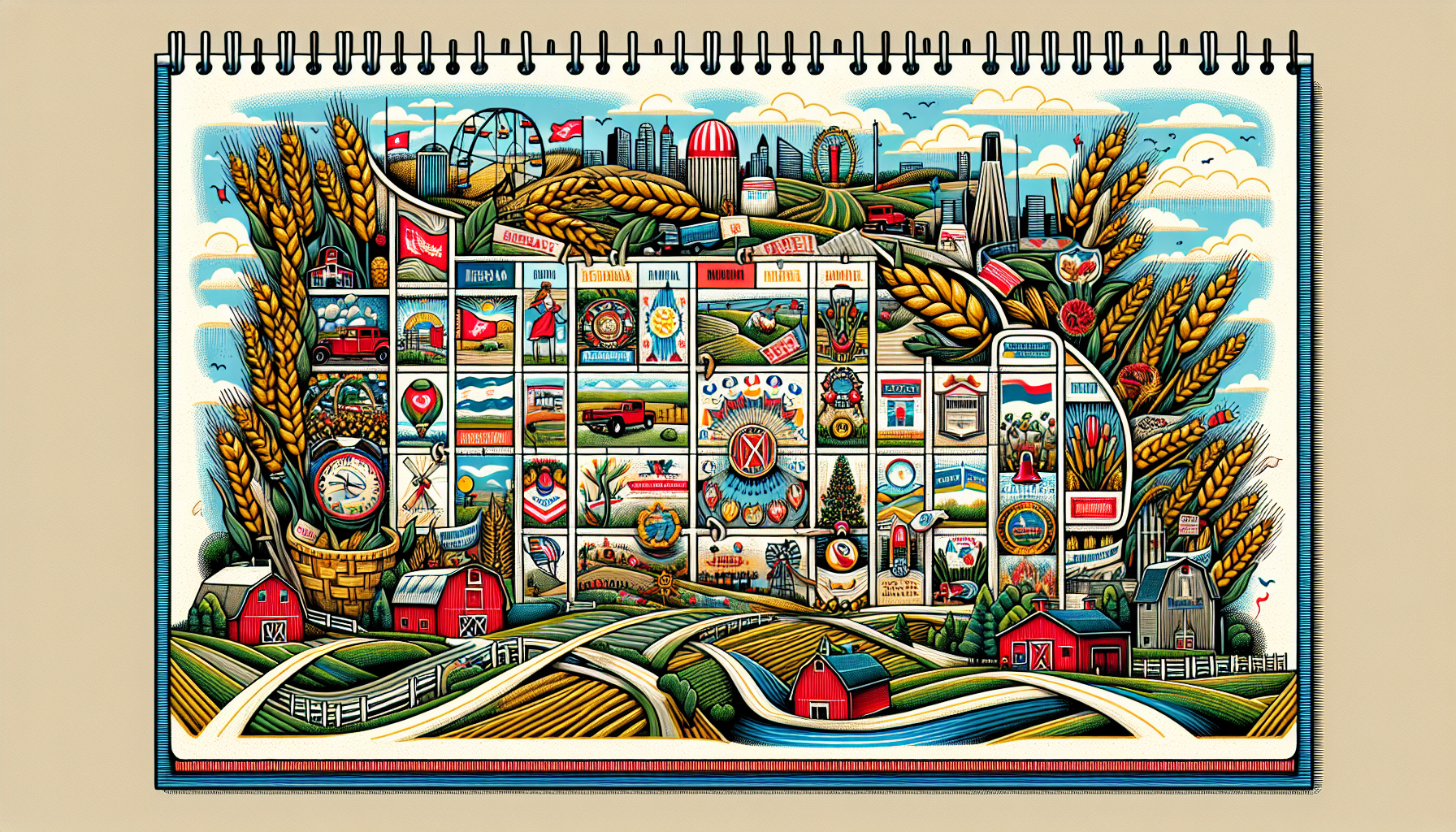Embracing Urban Composting Systems in Omaha

As one travels through Nebraska, a state predominantly known for its agricultural prowess, it is intriguing to explore the ways in which city dwellers can contribute to sustainable living. Urban composting systems, found in cities such as Omaha, have emerged as an innovative solution to reduce food waste and promote environmentally friendly practices. These systems harness organic waste, converting it into nutrient-rich compost that can be utilized in urban gardens and green spaces.
Omaha's Big Garden, a community-led initiative, serves as a prime example of urban composting in action. By collaborating with local residents and businesses, the organization collects food waste and yard trimmings, processing these materials into compost that supports urban agriculture projects. Similarly, the City of Lincoln's Urban Agriculture Program has established a composting facility that processes over 10,000 tons of organic waste annually, exemplifying the potential for urban composting on a larger scale.
A key component of urban composting systems is the implementation of efficient collection and processing methods. This may involve the use of compactors, such as those manufactured by the Illinois-based company, Marathon Equipment, or the deployment of composting bins specifically designed for urban environments. The latter can range from basic, low-cost alternatives like the 'Worm Factory' to more advanced, high-tech solutions such as the 'Big Hanna' in-vessel composting system, used by institutions like the University of Nebraska-Lincoln.
In-vessel composting systems, such as those found in the Big Hanna, utilize aerobic microorganisms to break down organic waste, minimizing odors and pests associated with traditional composting methods. These systems can be particularly beneficial in densely populated urban areas, where space and odor concerns may limit the feasibility of open-air composting operations. Conversely, Vermicomposting systems, like those used by the Worm Factory, employ red wiggler worms to decompose organic materials, often providing a more compact and low-maintenance alternative for smaller-scale urban composting applications.
ZooShare, a non-profit organization based in Toronto, Canada, offers another unique example of urban composting in action. By partnering with local zoos to collect animal waste and food waste from the surrounding community, ZooShare produces high-quality compost and biogas, generating revenue to support conservation initiatives. This innovative approach highlights the potential for urban composting to not only promote environmental sustainability but also contribute to social and economic development.
Urban composting systems also play a crucial role in addressing food waste concerns. According to the United States Environmental Protection Agency, food waste accounts for approximately 30 percent of municipal solid waste in the United States. By implementing effective composting systems, cities like Omaha can significantly reduce the amount of organic waste sent to landfills, ultimately decreasing greenhouse gas emissions associated with decomposition.
As urban composting continues to gain momentum across the United States, it is essential to consider the systemic challenges associated with implementing and maintaining large-scale composting operations. Collaboration between policymakers, industry stakeholders, and community leaders will be crucial in developing comprehensive urban composting systems that effectively address food waste concerns and promote sustainable practices.
Omaha's Big Garden, a community-led initiative, serves as a prime example of urban composting in action. By collaborating with local residents and businesses, the organization collects food waste and yard trimmings, processing these materials into compost that supports urban agriculture projects. Similarly, the City of Lincoln's Urban Agriculture Program has established a composting facility that processes over 10,000 tons of organic waste annually, exemplifying the potential for urban composting on a larger scale.
A key component of urban composting systems is the implementation of efficient collection and processing methods. This may involve the use of compactors, such as those manufactured by the Illinois-based company, Marathon Equipment, or the deployment of composting bins specifically designed for urban environments. The latter can range from basic, low-cost alternatives like the 'Worm Factory' to more advanced, high-tech solutions such as the 'Big Hanna' in-vessel composting system, used by institutions like the University of Nebraska-Lincoln.
In-vessel composting systems, such as those found in the Big Hanna, utilize aerobic microorganisms to break down organic waste, minimizing odors and pests associated with traditional composting methods. These systems can be particularly beneficial in densely populated urban areas, where space and odor concerns may limit the feasibility of open-air composting operations. Conversely, Vermicomposting systems, like those used by the Worm Factory, employ red wiggler worms to decompose organic materials, often providing a more compact and low-maintenance alternative for smaller-scale urban composting applications.
ZooShare, a non-profit organization based in Toronto, Canada, offers another unique example of urban composting in action. By partnering with local zoos to collect animal waste and food waste from the surrounding community, ZooShare produces high-quality compost and biogas, generating revenue to support conservation initiatives. This innovative approach highlights the potential for urban composting to not only promote environmental sustainability but also contribute to social and economic development.
Urban composting systems also play a crucial role in addressing food waste concerns. According to the United States Environmental Protection Agency, food waste accounts for approximately 30 percent of municipal solid waste in the United States. By implementing effective composting systems, cities like Omaha can significantly reduce the amount of organic waste sent to landfills, ultimately decreasing greenhouse gas emissions associated with decomposition.
As urban composting continues to gain momentum across the United States, it is essential to consider the systemic challenges associated with implementing and maintaining large-scale composting operations. Collaboration between policymakers, industry stakeholders, and community leaders will be crucial in developing comprehensive urban composting systems that effectively address food waste concerns and promote sustainable practices.
